Borderline
Feels like I’m going to lose my mind…
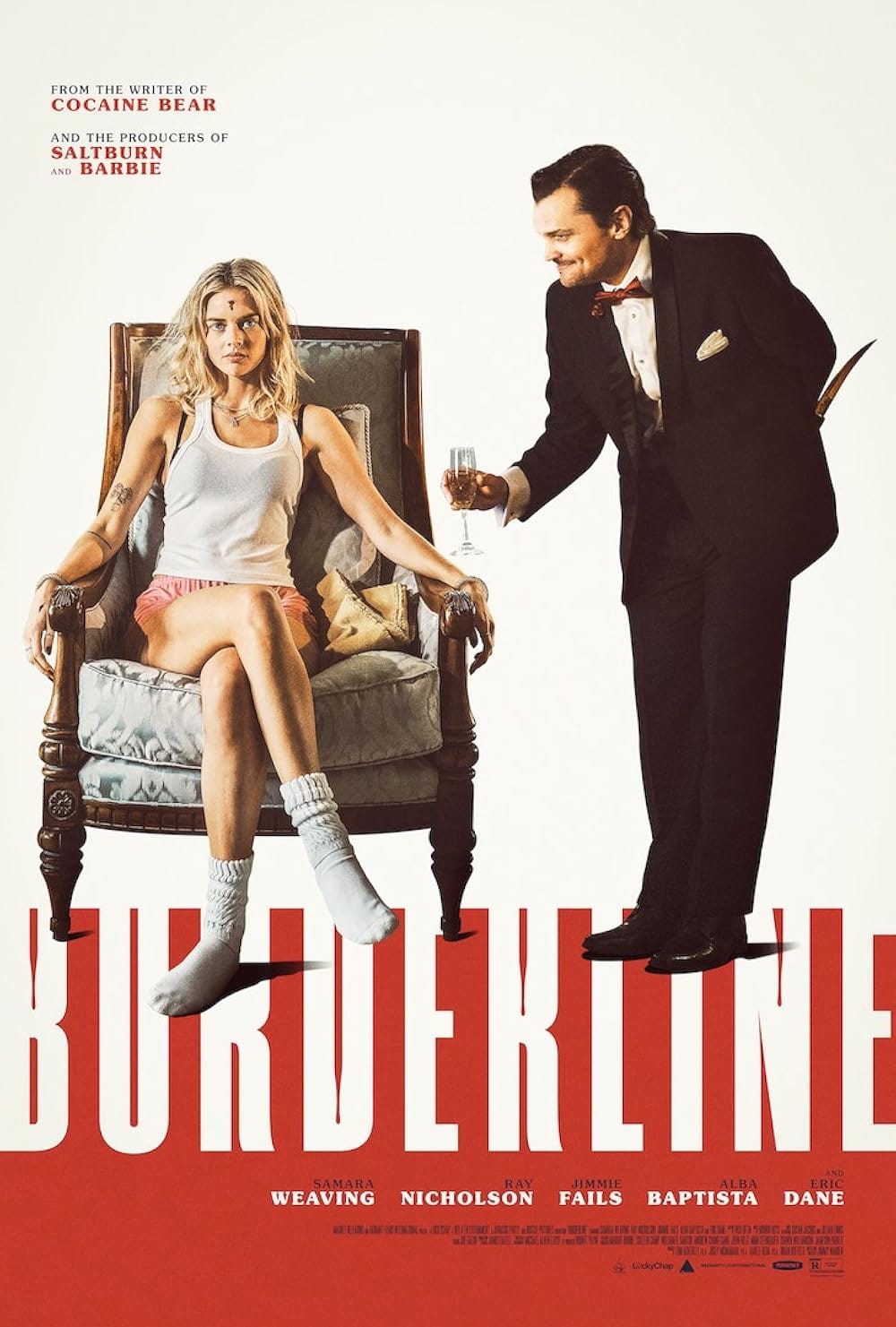
A charming, delusional, and very dangerous sociopath escapes from a mental institution and invades the home of a world-famous pop star he is enamored with, believing that the two of them have plans to get married. His pursuit of love means the object of his affection now has only one option... survive.
Samara Weaving is awesome, and I was a big fan of Ready or Not and Guns Akimbo. I also really loved her here, where she plays a not-so-vague allusion to Madonna, even though the film is set in a world where Madonna does exist, which means that she’s basically playing the Poor Man’s Madonna in this film, but that's all right, since Samara Weaving is basically the Poor Man's Margot Robbie.
It's true, you know it is.
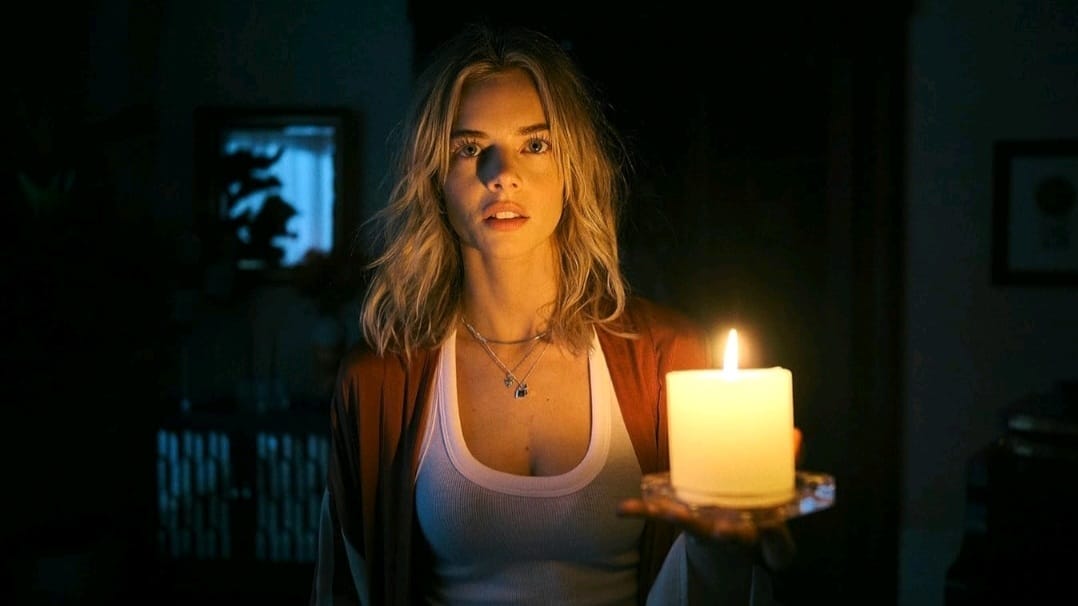
Anyway, the film says that it’s set in 1990-something, but from the in-world context, it's somewhere around the time when Madonna was hanging out with Dennis Rodman, and also Lovefool by the Cardigans was on the radio constantly, so… 1994 to 1996.
Sofia is a pop culture queen, a star of stage and screen, radio and concert halls, who lives up Mullholland in a gated mansion. She is the kind of star that can go by one name and everyone will know who you are talking about. This means that she has a lots and lots of fans, which, of course, is short for fanatic.
Paul Duerson is one of those fanatics.
But after his girlfriend died of a sudden stroke mid-song at a Sofia concert, he’s been a bit off, and is now convinced that he and Sophia are in love and are about to get married. This delusion leads him to dog her heels everywhere she goes, and finally culminates in him stabbing Bell, Sofia’s trusted long time bodyguard, on the front steps of her mansion.
Six months later…
Bell survived the stabbing and returns to work against the wishes of his young daughter, Abby, who worries for his safety. Sofia is dating professional basketball player DeVante Rhodes, but that's beginning to fizzle. That night, as Sofia returns home with Devante, Bell informs her that he has received word that Paul has escaped from prison along with a fellow inmate named Penny Pascal. Bell locks down the mansion, but has to run home after getting a destressing call from his sister, Eleanor, who is babysitting Abby.
Things quickly go downhill.
Penny kills Sofia's gate security guard, while Paul breaks in and knocks Sofia unconscious, and Paul's friend and accomplice J. H. Calhoun abducts Abby, Bell, and Abby's aunt Eleanor from Bell's apartment. And soon enough, hostages and lunatics alike are all brought together for the big ceremony, where as the Muppets say... Somebody gеt some flowers! Somebody get a ring! Somebody get a chapel, and a choir to sing! Somebody get an organ to play, 'cause somebody's getting married today!
But who will survive the festivites...?
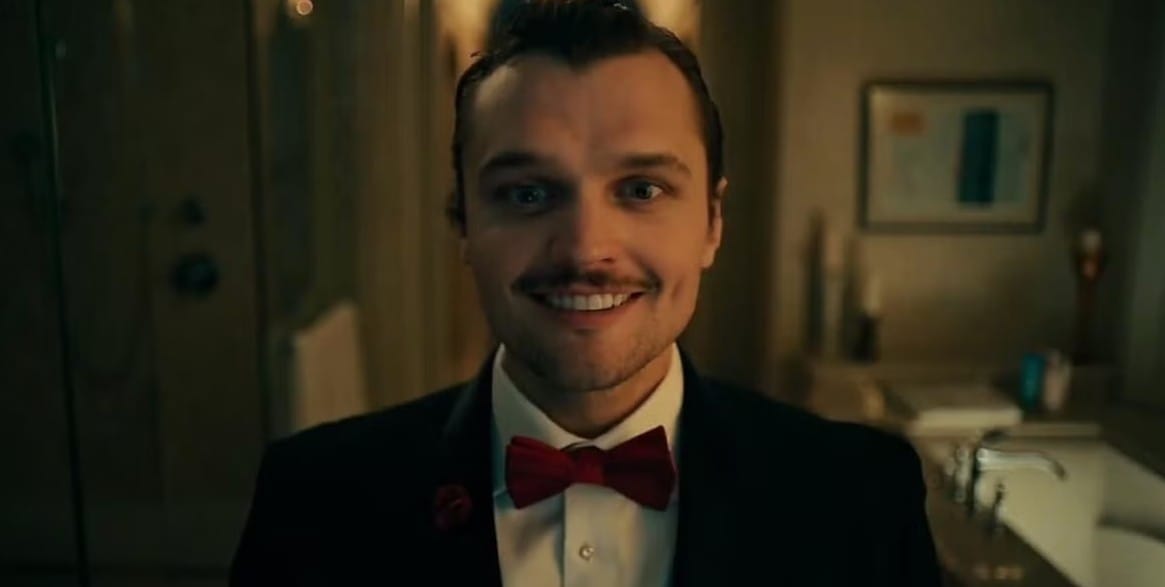
With its fun and funny characters, Borderline is cheeky little home invasion thriller, meets celebrity stalker horror flick, mixed with a slasher comedy. It isn't perfect, but I enjoyed it.
Written by Jimmy Warden, in his directorial debut, I think the main problem with this film is it's a weird lack of focus amongst the characters. We spend a lot of time with the minor characters, and a bunch with Paul in this film, but we're with Bell so long that, when the film then focuses on Sofia, it feels like the main character is missing from the scene. Where's Poochie, know what I mean?
I think that maybe this script is going for a multi-character POV along the same lines as something like Pulp Fiction, but the presentation of these multiple points of view are either too long, or too scattershot, that the balance feels off. That's not to say that I didn't enjoy the film, just that it was a lot of rough transitions. Also, it's not scary at all, and the gore is pretty light, so more than anything, Borderline is more of a "horror" comedy than it is a horror comedy. There’s also a bit of gay panic at the end, but that seems pretty appropriate for the time period, so…
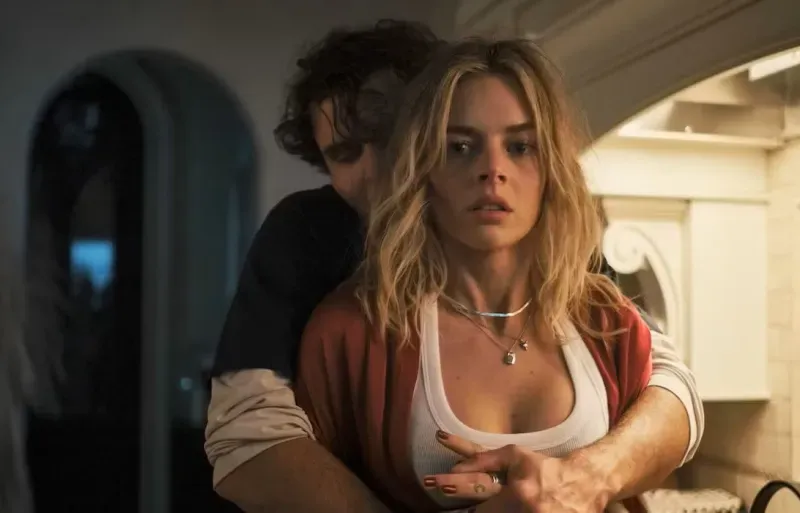
Borderline starts out by very clearly demonstrating why it’s a bad thing–not to mention the fact that it's just plain old wrong–for the world, for society at large, and especially for you, to give white boys so much leeway in the kinds of situations where if they weren't white, at the very least they would have had the cops called on them, or more likely these days, they would've been immediately shot to death in a blind "stand your ground" froth of white rage.
And I wondered, is this what the film is actually about?
Some critics have dinged this film for being too playful, for undermining the seriousness of the subject, by which I assume they're referring to stalking, sexual assault, murder, the general disregard by greater society of these problems, and all that stuff, and they're not wrong. I can see that. But I wondered, is that what this film is really about? Was it really about Sofia as the victim?
Maybe this is because it was so hard to nail down who exactly the main character was, but it seemed like this film was more about that leeway white boys get, and the people (white men) who are responsible for it. More so, it seemed to be about the terrible results of that open secret of a system, saying that this is what you get when society coddles terrible and mediocre little white boys. It seemed to be about what happens when these boys skate on punishments, when "boys will be boys" is used as the justification by white people in authority, people who will often explain that you don’t want to “ruin" this poor young (white) man's life by imposing upon him the well-deserved consequences of his own actions. It seems to be about how, as a result of this terrible and unfair system, these white boys then learn that there are no consequences, and they then go out, and for the rest of their lives continue to wreck worlds, both big and small, just for the fun of it, just because they want to, just because they feel like they're entitled to do it.
Isn't that how we got Trump?
Maybe that's why the film is so full of jokes... it's a metaphor for America.
As further proof of this idea, I would point to how the film consistently shows us that the forces that are supposed to protect us from the homicidal entitlement of white America are all either wholly unprepared, completely unwilling, or are just plain old incapable of meeting the moment. Add to that the way the wealthy and the privileged in the film all seem to be unable to comprehend how much danger they are actually in, at least… not until it’s too late, and even then, it was only after momentarily pausing hostilities with the murderous sociopathic maniacs, and for no other reason than their own personal benefit and enjoyment.
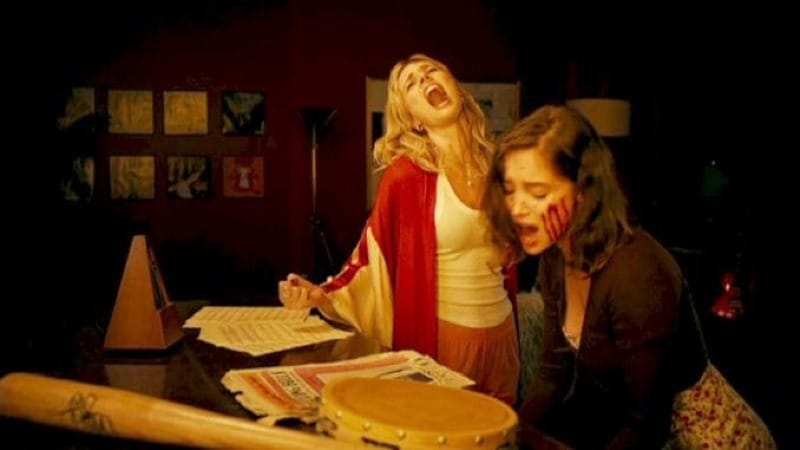
And the real red meat of the whole metaphor comes when the privileged white people are shown to be unwilling to do what’s necessary to stop these monsters, something they then justify with some “high road” bullshit, like being the "better" person absolves them of their responsibility to protect society, when in actuality, it's just their mask slipping, allowing us to see that they actually believe themselves to be too good to deal with the threats that are literally coming from within their own house, threats that are really only kind of threats, and are more silly than they are dangerous, regardless of how many others those threat have actually hurt. And that's the kicker, the reveal that those who have been hurt simply do not have as much value as the idea of these monsters' possible redemptions.
Of course, this is shown to be yet another bullshit belief of the priviledged white person, as once they themselves have been hurt by the rotten fruit of a poison tree they cultivated, they change their minds, and act as if they were heroes all along...
Now, admittedly, I don’t know if this was the intended point of the film or not. Maybe not. Probably not. But still... (gestures around at the teetering edifices of our collapsing empire), at the very least it's the result of a leaking subconscious, right? And even if it's not, even if this is just me seeing the phantoms of my own leaking subconscious... it’s really hard for me to see what else this film might possibly be about. Either way, regardless of its overall execution, or whatever its true point may have been, the characters' passivity in the face of violence makes for a frustrating watch. Being able to see things that are clearly going to happen in the movie, long before they actually happen, makes the whole thing feel like yet another fucked up metaphor for our current times, albeit much more of a meta-textual and Cassandrian one.
So, I could definitely relate to how, as the end credits roll, the camera lingers on Paul’s face, his features trembling as he tries to smile and reassure himself that everything is okay, all while he is completely unable to hide the torrent of horror roiling within him. It’s not anywhere as amazing as Mia Goth's performance in the similar end credits of Pearl, but it’s still pretty good.
And definitely a metaphor for our times.
